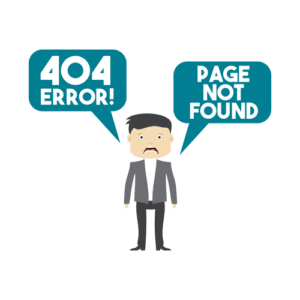Understanding Retainer Fees: What They Are and How They Work in Finance and Investment

These funds remain separated from hourly wages and are only used for approved costs related to the services rendered. It is essential to note that retainer fees do not ensure a specific outcome or final product; instead, they secure the professional’s commitment to work on your behalf when needed. Think of it as placing a down payment on peace of mind, define retainer fee ensuring that you have access to legal expertise when you need it most.
- However, the deductibility of retainer fees can vary depending on the nature of the services and the specific tax laws in the client’s jurisdiction.
- Retainers give freelancers income stability while providing clients with consistent output.
- This approach benefits service providers by improving cash flow while often offering discounts to clients as an incentive for upfront commitments.
- Many retainer agreements include a provision for replenishment, sometimes called an “evergreen” clause.
- Determining the appropriate retainer fee involves a blend of art and science, requiring a thorough understanding of the client’s needs, the scope of services, and the professional’s expertise.
- Just because somebody offers a less expensive retainer fee does not mean they are the better option.
How to Transition Clients Into Retainers?

However, in some states, advance payment retainers merely cover expected fees for the future services with the client being responsible for any extra fees that accumulate. These types of retainers receive varying treatment across states with some disallowing them altogether because of the difficulties posed to clients in getting prepayments returned. Your knowledge about the legal field can be improved by understanding what retainer fees are. Retainer fees are upfront costs paid to a lawyer to secure their services and ensure their availability for future legal work. This arrangement necessaryly gives the attorney a promise of payment for the agreed-upon services, allowing them to allocate time and resources to your case.
Considerations when using retainer fees

If the lawyer wins the case, he can charge his fees and adjust the receivables against the retainer amount. To understand the importance of retainer fees, let us take an example wherein the client appoints a lawyer to handle the lawsuits of his business. It is still widely used today as a way for service providers to secure a steady income stream and for clients to have ongoing access to the service provider’s expertise and resources.
What Is an Unearned Retainer Fee vs. an Earned Retainer Fee?
Clients prepay into a trust account, and funds are deducted incrementally as tasks are completed. This model provides clients with legal expertise while allowing lawyers to manage their time effectively. Retainer fees have likely been around for hundreds of years since service providers have always tried to get paid in advance for their work. However, the term “retainer fee” and its use in professional services such as consulting and legal services are relatively recent. Retainer fees are used by a wide variety of professionals, including consultants, business developers, freelancers, accountants, and attorneys. All of these professions most typically rely on retainer fees because they are service-based professionals that often juggle multiple clients at the same time.
- For example, if a lawyer’s hourly rate is $300 and they work for five hours, they will earn $1,500 from the retainer funds.
- By adhering to these elements, retainer agreements not only standardize the provider-client relationship but also safeguard against misunderstandings.
- If, for example, you are using a retainer fee that you have paid in advance, you have to specify that the attorney has to cover any costs and fees once a specific amount of fees have been incurred.
- Task-based retainers are common in industries like marketing, where clients may need support for a particular campaign or initiative.
- You’ll make the right amount of money while providing your client with the value they deserve.
- Instead of charging per project, the designer can charge a retainer fee to guarantee a set number of hours dedicated to the company’s website each month.
- For clients, a retainer provides peace of mind that they have dedicated legal representation to work on their case.

You will need to negotiate the best terms possible or live with limitations that are not ideal. For example, some clients may insist on including a stipulation in the contract that you cannot work for their competitors, which can limit your ability to secure other work in the same field. Whether you are an independent consultant or part of a firm, you have to decide which pricing model or fee structure to propose when you are doing a proposal for a client.

That means that the client has to perceive that what you offer Sales Forecasting it worth every penny. You need to deliberately ensure that they can see, touch, taste, and feel high value during the entire engagement. You’ll need to spend the time and energy to communicate and demonstrate that continually and skillfully. In most cases, any unearned portion of a retainer must be refunded to the client. Even if the agreement labels it “non-refundable,” ethical rules generally require lawyers to return unused funds after services are completed or terminated. Unlike the lawyer retainer, which is simply the fee to retain the attorney’s availability in advance, the lawyer retainer agreement includes all the details of the work to be performed.
Benefits of Retainer Agreements for Clients

Next, consider overhead expenses such as administrative work, utilities, and equipment maintenance that support service delivery. If you hire subcontractors or assistants https://internationalvalvebuyers.com/what-is-fte-full-time-equivalent/ to handle parts of the work, include their costs in the fee calculation. By retaining long-term clients, professionals avoid the time and cost of constantly finding new leads. Retainers guarantee a lawyer’s service to the fee payer, so they are obligated to take on legal work for the client.





 English
English Русский
Русский